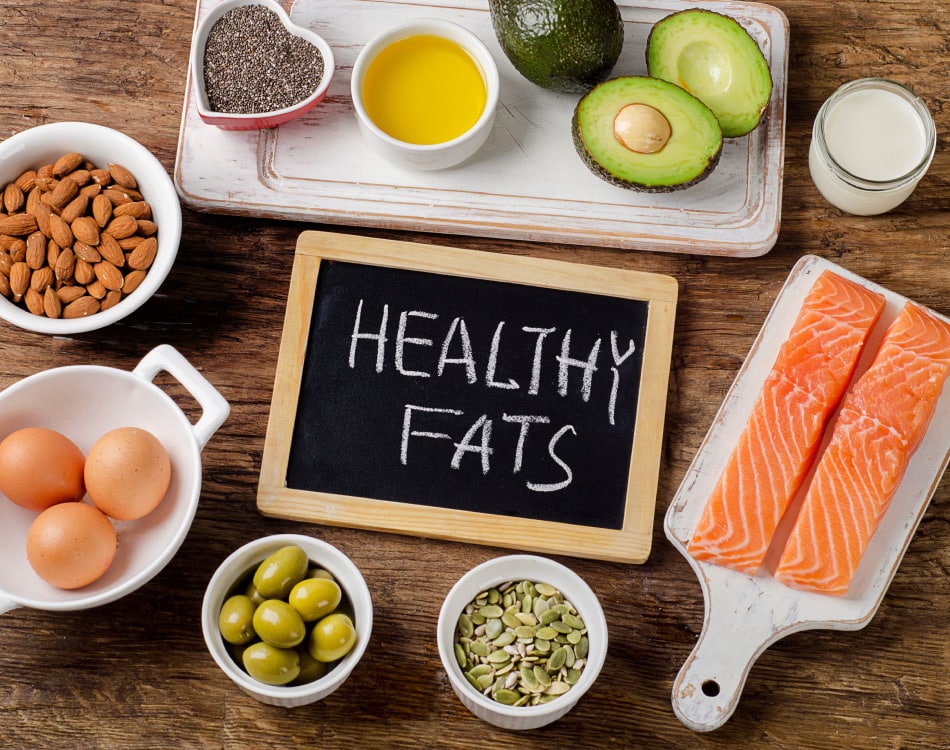When we change our diets to lose weight, we generally have two dietary approaches at our disposal; low-carb or low-fat, but dropping healthy fats from your diet is a mistake.
When total calorie intake remains the same, there are benefits and drawbacks to both approaches, and not everyone will respond to these dietary manipulation tools in the same way.
However, we often fail to understand the implications that a low-fat diet has on our general health, wellbeing, and even our ability to maintain the muscle we build by working out in the gym.
Conventional approaches to weight and fat loss require that we drastically reduced our fat intake, often to as low as 10% of total calorie intake. Today we know that this approach is not just unhealthy, it’s also counterproductive to our efforts to improve our health and create a more shapely body.
READ MORE | Forget Your Fat Phobia: Not All Fats Are Bad For You
Fats for health
Our bodies need fats from our diets to produce hormones that regulate numerous bodily functions, including the menstrual cycle and fertility, and help build more shapely, attractive muscle.
Healthy fats also aid nutrient absorption, specifically the fat soluble vitamins A, D, E and K, and play important roles in cardiovascular health and function by lowering “bad” LDL cholesterol while increasing “good” HDL cholesterol, which is associated with a reduced risk of heart disease.
These fats also possess anti-inflammatory properties that can protect the blood vessels, reducing the risk of atherosclerosis and hypertension.
These fats include those typically deemed ‘healthy’ – mono- and polyunsaturated essential fatty acids like omega-3s and omega-6s – as well as saturated fat and cholesterol, two forms of dietary fat that are typically demonised.
- Essential fatty acids: Vital for hormone production and balance. They help control inflammation and play a role in prostaglandin production, which affects various aspects of the menstrual cycle and fertility.
- Cholesterol: Acts as a precursor for steroid hormone production. These hormones include oestrogen and progesterone, which are essential for regulating the menstrual cycle and supporting reproductive health in women.
- Saturated fat: Necessary for the production of testosterone and oestrogens. These sex hormones play distinct yet interrelated roles in overall female health and optimal bodily function. contributing to reproductive health, cardiovascular health, and the maintenance of physical and mental well-being in women.
READ MORE | Should You Take Your Vitamins And Minerals Before Or After Meals?
Physical benefits
Healthy fats from our diet and supplements also benefit our training and performance. The role essential fatty acids play in controlling inflammation may help to support joint health and function and support the body’s natural repair mechanisms.
They also aid vitamin D absorption, which is important for maintaining strong bones and overall joint integrity.
Certain fats are essential in the formation, maintenance and repair of cell structures and support nerve impulse transmission, which are critical functions for optimal bodily function and growth.
Diet-derived and stored body fat also provides a concentrated source of energy to fuel our workouts and daily activities, providing nine calories per gram (compared to four calories from carbohydrates).
READ MORE | 10 Tips To Unlock Ketosis For Fat-Fuelled Energy
Know your fats
Despite their importance, not all fats are created equal. We should focus on getting more natural sources of healthy fats while reducing or limiting our intake of processed trans fats and hydrogenated oils, as they can negatively impact our weight and health.
Avoid or limit…
Hydrogenated trans fats
Trans fats are artificially (partially) hydrogenated fatty acids. These man-made fats have been developed to extend the shelf-life of many modern processed foods, and have been linked to a wide variety of modern ailments and diseases. Trans fats reportedly raise ‘bad’ LDL cholesterol and lower ‘good’ HDL cholesterol levels, which may lead to atherosclerosis. They also contribute to inflammation, and research has made direct connections between trans fatty acids and various health conditions, including cardiovascular diseases, breast and colon cancers, pregnancy complications, disorders of nervous system and vision in infants, diabetes, obesity and allergies.
Moderate your intake of…
Polyunsaturated fat
These include the beneficial omega-3s and omega-6s. However, these two forms of polyunsaturated fats need to be consumed in the right ratios, and modern western diets typically provide omega-6 fatty acids in excess. As such, it is important to moderate your intake of omega-6 polyunsaturated fat, and get more omega-3s from whole food sources such as oily fish, nuts and leafy greens, and supplements where necessary.
Saturated fat
Certain types of saturated fat, such as stearic acid found in plant products like cocoa, coconut and palm oils, as well as animal products like dairy, meat and poultry, are beneficial and don’t negatively affect cholesterol levels. However, certain saturated fats or a high intake can raise LDL cholesterol. Keep your saturated fat intake to no more than 10% of your daily fat-derived calorie intake.
Cholesterol
While elevated circulating levels of LDL cholesterol are damaging to your health, there is ongoing debate whether diet-derived cholesterol is the cause, or if an overconsumption of simple carbs, sugar and trans fats, predominantly from processed foods, are to blame. While research continues to explore this link, guidelines suggest that you derive 300-500 mg of cholesterol from your diet. This can come from foods that naturally contain cholesterol, such as animal products, or getting the right ratio of the natural foods required to synthesise this compound in the body.
Get more…
Monounsaturated fat
Monounsaturated fats are generally considered the healthiest form of fat. They help to lower LDL cholesterol, and therefore lower your risk of cardiovascular disease and stroke. This type of fat contains high levels of vitamin E, which is a very important antioxidant. Olive oil, avocados, nuts and olives are foods that are high in monounsaturated fat.
Medium chain triglycerides
Medium chain triglycerides (MCT) are metabolised differently than other fatty acids. They bypass the normal digestive process that long chain fats go through and are processed by the liver, which converts them into ketones that can readily be used for energy production. Ketones are a suitable energy source for physical activity and brain function, which may enhance cognition, concentration and alertness.
Finding the balance
In terms of your optimal macronutrient ratio, there is universally applicable rule. Individuals who suffer from insulin resistance or type 2 diabetes may benefit from a lower-carb, higher-fat diet, at least initially.
Those in otherwise good health, with optimal metabolic function, could benefit from a more balanced carb and fat.
As such, a guideline for those looking to maintain optimal health and bodily function, healthy fats should comprise 30-40% of your total daily calorie intake. Try to limit your saturated fat intake to no more than 9-10%, get about 10-15% of your total calories from monounsaturated fats, and about 10% of your calories from polyunsaturated fats.















